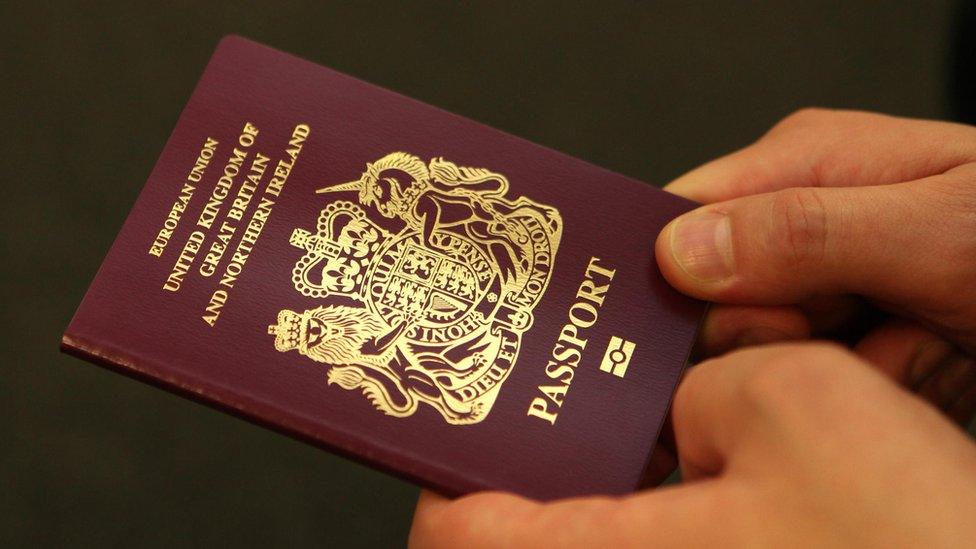EU applications for UK citizenship up 80% since Brexit
- Published

Nearly 30,000 EU nationals applied to become British citizens in the 12 months after last summer's Brexit vote - almost double the number of the previous year.
Home Office statistics show 28,502 such applications between July 2016 and June 2017, up 80% from 15,871 in 2015-16.
The total number of applications, from all nationalities, fell by 8%.
The rise comes as ONS figures showed a fall in net migration - partly due to a rise in EU nationals leaving the UK.
Jonathan Portes, a professor at King's College London, said: "Historically, immigrants from outside the EU have been much more likely than EU migrants to apply for UK citizenship."
But the uncertainty over EU citizens' rights in the UK after Brexit means "many EU citizens living here are seeking UK citizenship, at least as an insurance policy", he added.
One of the most noticeable changes was among Germans, with applications almost tripling.
Applications from nationals of eight eastern European countries which joined the EU in 2004 rose by 45% to 9,841 - Poland had the highest with 6,179.
The Home Office report said increases in applications from EU nationals in recent years are "likely to reflect immigration in earlier years while the most recent rise may be partly due to the impact of rule changes and recent events".
The rights of the three million EU citizens living in the UK following Brexit is one of the key issues in the UK government's negotiations with Brussels.
While there has been a rise in applications from EU nationals, the number from the rest of the world has fallen by 18% in the last 12 months - from 131,266 to 107,410.
Meanwhile, ONS figures released on Thursday showed net migration - the difference between those entering and leaving the UK - fell 81,000 to 246,000 in the year to March 2017.
That was partly because the number of EU citizens who decided to leave the UK increased by 33,000 year-on-year to 122,000 - the highest departure number for nearly a decade.

Marianne's story: 'Saddened it was necessary'

Marianne Kaufmann, an EU national with dual French and German citizenship, has lived in the UK for 24 years and recently became a British citizen.
"Had it not been for the fact that my (unmarried) partner is British, and that our daughter, too, is British, I would have liked to leave the UK after the referendum," she said.
"I felt unwelcome and unwanted.
"As it was, I felt forced to apply for British citizenship, which was tedious, lengthy and difficult, as well as an expensive process.
"Due to my partner's work there is the possibility that we may need to move abroad for several years, and I was worried that I would lose my permanent residency status.
"Last week I became a British citizen, while keeping my French and German nationality.
"While I am relieved and pleased that my application was successful and proud that I am now a British citizen, I am saddened that it was necessary for me to apply in the first place."

Applying for British citizenship
An application costs £1,282
Applicants must fulfil certain requirements,, external such as having lived in the UK for at least five years
Successful applicants are invited to a citizenship ceremony where they make an oath of allegiance and a pledge to respect the rights, freedoms and laws of the UK.